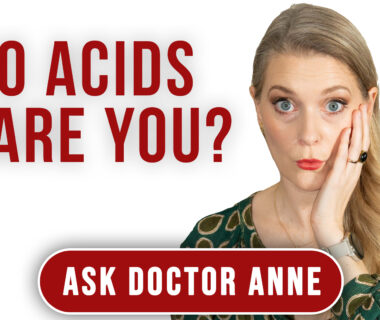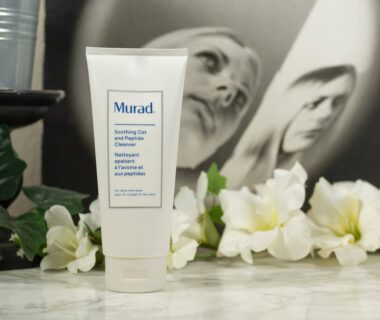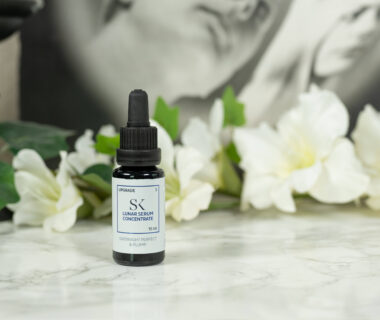A few weeks ago, suddenly out of nowhere, the right corner of my mouth started to hurt. It was cracked, sore, painful – I had Angular cheilitis or stomatitis angularis or perleche or however you want to call it. Wow, that did hurt whenever I tried to open my mouth wide enough to eat or speak.
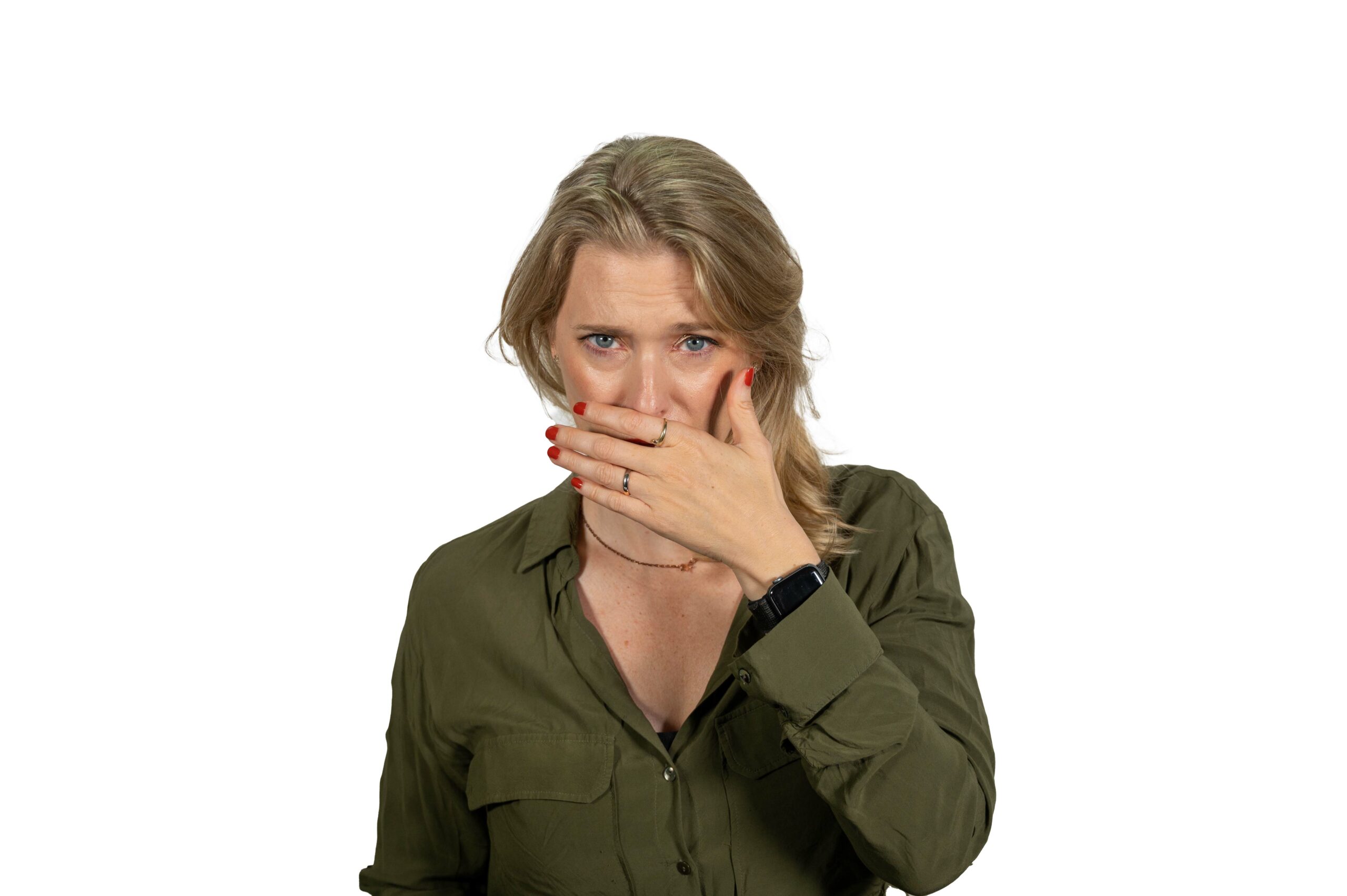
As this is something I had to deal with quite often when I started Tretinoin (it is associated with strong retinoids and especially Accutane), I figured I’d use this as a reminder to finally write about what it actually is, how you get rid of it and, most important, what you can do to prevent it in the future.
What is Angular Cheilitis?
Angular cheilitis is defined as a superficial inflammatory condition of the angles of the mouth often with fissuring that is caused by infection or avitaminosis.
It can occur on either corner of the mouth or on both corners simultaneously, but can in rare occasions spread onto the lips and even all around the mouth, which is pretty painful. Depending on the underlying condition and the treatment you chose, the healing process can take weeks to even months and it isn’t uncommon for it to seemingly travel from one corner of the mouth to the other.
What Angular Cheilitis is not
Even though it can look similar, Angular cheilitis is not the same as cold sores, and it is also not due to actual physical trauma as in tearing of the corners of your mouth. And while we see it more often during the colder months, it is also not just dry skin. (More info: Why you need to change your skincare routine in winter)
What are the risk factors for Angular cheilitis?
It is associated with atopic dermatitis or eczema though due to the reduced barrier function of the skin. As I said before the main reasons are infection, usually with Candida albicans, a fungus, or with Staphylococcus aureus, a bacterium. Both are species that live on our skin and mucosa without causing issues, but can in times of a disrupted barrier lead to infections. (More info: Damaged skin barrier as reason for acne and atopic dermatitis)
Now if you don’t suffer from a chronic condition that is associated with a disturbed barrier function, there are several ways you could disrupt it yourself:
- You could use the wrong skincare, for example overexfoliate – that should usually not happen in the corners of your mouth, but is worth at least thinking about.
- You could use the right skincare, but in the wrong places – some things like Hydroquinone or Tretinoin are not supposed to go too close to the mouth and could, especially if you are of a certain age, pool in wrinkles you have there. (More info: Ingredient Spotlight Hydroquinone)
- You are on a medication that either predisposes you or weakens your immune defence, like Accutane or corticosteroids, either systemic or inhalative.
- You suffer from a condition that causes malabsorption of certain vitamins, especially from the Vitamin B family, or iron. That could include Crohn’s disease, gastric surgery, but also malnutrition due to alcoholism or an eating disorder and sometimes even due to being on the pill. (More info: The best foods and supplements for healthy skin)
- And the last one, which is actually very common – you get Angular Cheilitis because you drool in your sleep! Sexy, I know, but especially as we age, or if our lip anatomy is shaped a certain way, saliva will pool in the corners of the mouth and, believe it or not, saliva is an irritant that can lead to reduced skin barrier function and provide moistness, the perfect environment for Candida.
This is most likely what happened to me as I don’t have underlying health conditions and learned the hard way to keep my Tretinoin away from my lips. I guess the way I squished my face in the pillow, along with a slightly stuffy nose – my husband even claims I snored, rude! – all that led to saliva pooling there and irritating my skin.
Once the corner of my mouth started hurting, I did what everyone in my situation would have done: I started testing the affected area with the tip of my tongue several times a day. Which means I didn’t give it time to dry and I put more saliva on top – exactly what you are NOT supposed to do!
How do you treat Angular Cheilitis?
So now you know what you should not do. But how do you get rid of it, preferably without the process taking weeks?
First of all you pat it dry, then you apply a thick layer of something occlusive like a petrolatum based lip balm, preferably without anything that could cause further irritation, something like unfragranced vaseline, to keep it dry and protect it from your saliva.
If that doesn’t help or you have the strong suspicion that it is already infected, go see a doctor for a cream that contains antifungal and antibacterial medication. I know that you can get these things without prescription in some countries, but I strongly believe that things like that should not be used without a consultation first. Use them as prescribed and in the meantime, protect the area with an occlusive layer.
Don’t poke it with your tongue, don’t peel off any scabs, basically don’t touch it.
As for the hydrocortisone lip balms I have seen recommended on the internet, yes, they will bring down the inflammation, but they are of no use if the area is infected and can on their own increase the risk for Angular Cheilitis as they are corticosteroids. They have their time and place, but again should be recommended by a doctor that had a chance to look at your lips first!
How do you prevent Angular Cheilitis from reappearing?
Once the corners of your mouth are healed, ask yourself why you got that in the first place.
Drooling in your sleep like moi? Put on a thick layer of balm before bed as physical protection.
Wrong skincare or taking your Tretinoin too close to your mouth? You know what to avoid then!
If you are suspecting a nutrient deficiency, talk to your health care provider about possible supplementation and focus on your diet.
And if the Angular Cheilitis is part of your struggle with Atopic Dermatitis or Eczema or caused by medication you take, turn to your treating doctor for advice based on your individual situation.
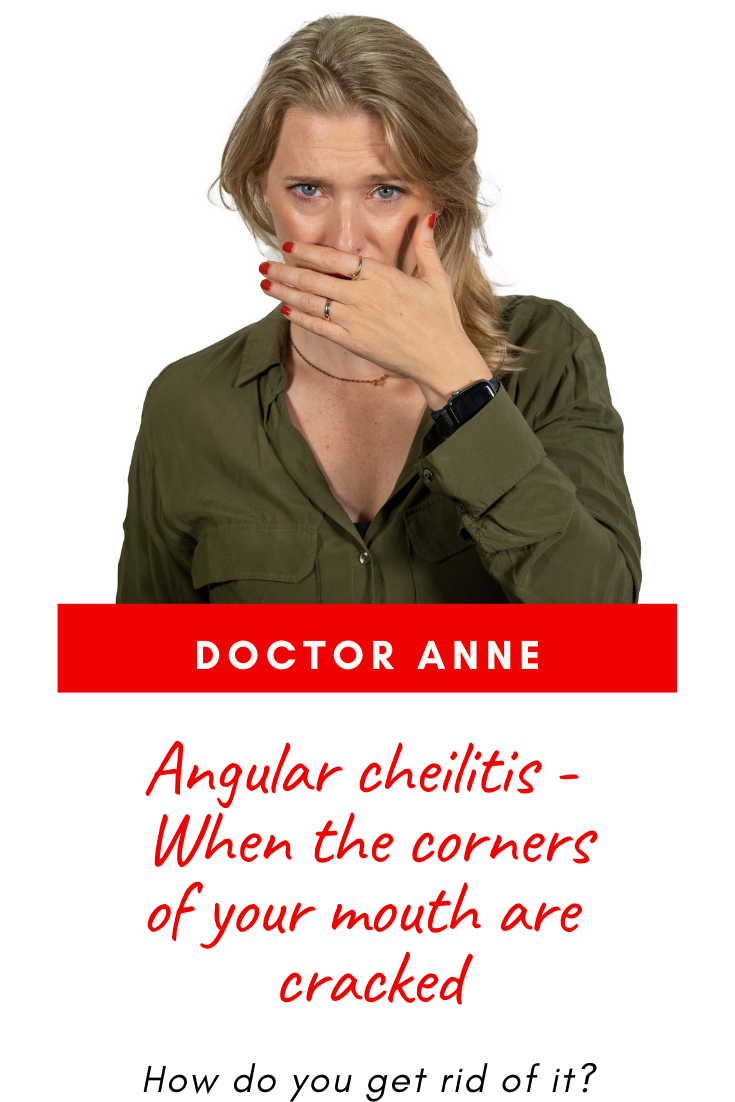
If you want to get a vote in the next Ask Doctor Anne Topic, Ingredient Spotlight or product I review, don’t forget you can head over to my Patreon account to get more involved!
